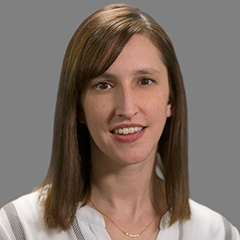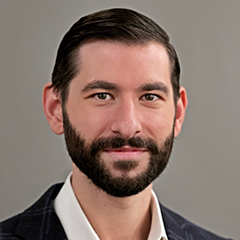Project Overview
To understand gaps in availability and quality in home-based child care (HBCC), the project will: review literature, quality measures, and data sets; analyze existing data; and develop a conceptual framework, research agenda, and design reports to guide future research.
HBCC is vital to and the most common type of care for children living in poverty, but providers have fewer resources and supports than other early care and education settings.
- Erikson Institute
- Toni Porter, Early Care and Education Consulting
U.S. Department of Health and Human Services, Administration for Children and Families, Office of Planning, Research, and Evaluation

The Office of Planning, Research, and Evaluation (OPRE) within the Administration for Children and Families (ACF) has contracted Mathematica, along with the Erikson Institute and Toni Porter of Early Care and Education Consulting, to study: (1) gaps in our understanding of HBCC availability (sometimes referred to as supply) and (2) challenges defining and measuring quality in HBCC settings. The following research questions will drive study activities:
- What are the key features and drivers of HBCC availability?
- What are the essential features and drivers of quality in HBCC, and how should these features be measured?
- What factors support or inhibit HBCC provider participation in quality improvement efforts and in other early care and education systems?
The project team is applying an equity lens to project activities to (1) recognize the systemic, institutional, and community-based factors that perpetuate inequitable experiences among HBCC providers, children, and families, and (2) inform efforts to ensure that all HBCC providers, children, and families have equitable access to resources and opportunities, and the capacity to take advantage of those resources and opportunities. Many HBCC providers, children, and families are from underserved communities (including, Black, Hispanic/Latino/a, and Indigenous and Native American persons, Asian Americans and Pacific Islanders and other persons of color; those who live in rural areas; and those otherwise adversely affected by persistent poverty or inequality). The team is applying this lens to the following four activities: (1) review existing HBCC literature, quality measures and indicators, and data sets relevant to HBCC; (2) develop a conceptual framework for quality in HBCC; (3) analyze existing data on characteristics and experiences of HBCC providers; and (4) develop a research agenda and design reports to guide future research. Further, the study team will collect additional provider data and develop a new measure of HBCC quality.
Throughout the project, the study team will obtain input from HBCC experts and stakeholders to ensure the study products reflect diverse perspectives. For target audiences of state and local administrators, quality improvement providers, provider networks and associations, policymakers, and researchers, the study team will produce and disseminate several products. These include: (1) a literature review on quality in HBCC, (2) a review of existing HBCC quality measures, (3) an HBCC research agenda, and (4) study design options to assess HBCC supply and quality. Other products might include webinars, special topic briefs, fact sheets, and other presentations. These products will inform efforts to assess, support, and engage HBCC providers in quality improvement initiatives, as well as the early care and education systems more broadly.
Evidence & Insights From This Project

A National Portrait of Unlisted Home-Based Child Care Providers: The Communities Where Providers Live
This analysis brief is part of the Home-Based Child Care Supply and Quality (HBCCSQ) project and examines the characteristics of communities in which HBCC providers live. The brief is one in a series that presents a national portrait of unlisted HBCC providers.
Learn MoreA Research Agenda for Home-Based Child Care
Related Staff
See Clearly. Act Quickly.
From local to global challenges in health, human services, and international development, we’re here to improve public well-being and make progress together. Learn more about becoming a Mathematica client or partner.
Work With Us




